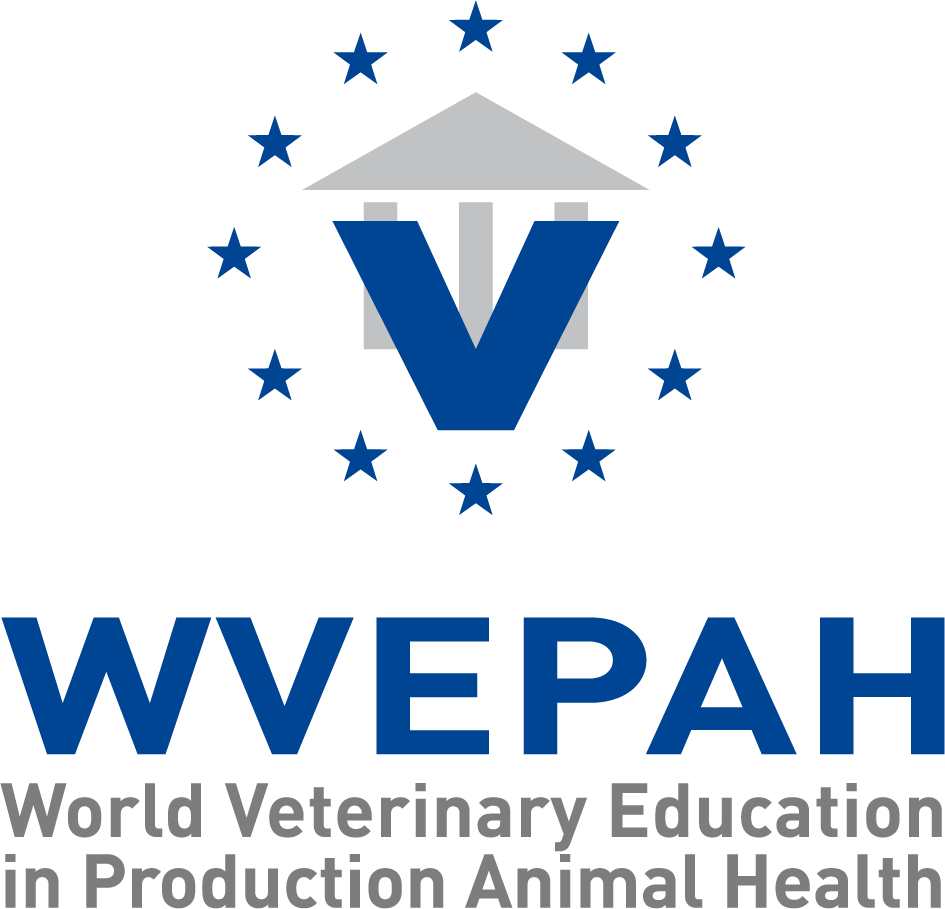
Aquaculture courses
HYBRID PROGRAM
Early Bird Registration
〰️
Until September 7th
〰️
Early Bird Registration 〰️ Until September 7th 〰️
Module I : Fundamentals of operational farm health management in Aquaculture
Online part
-
Under the "One Health" perspective, to support the sustainable development of aquaculture production for human consumption and improve the global level of aquaculture competencies, WOAH asked WVEPAH to develop a training and certification program for aquaculture health and biosecurity field experts. These experts will receive certification recognizing their ability to work locally at farm level, at watershed level, and regional and national levels.
They will acquire the ability to become key auditors and support farmers for biosecurity, disease management, prevention, surveillance, and product quality. They will also be internationally recognized in the Aquaculture network as trainers for trainers.
The certification is granted by international institutions: Montréal University for quality control and academic diploma delivery, and the WOAH for worldwide recognition. Thus, certified professionals are de facto awarded as international experts.
WVEPAH wants to give expert and trainees the tools to identify the limiting factors and bring solutions in the field
Experts will learn about:
Pathogens
Species, specificity & physiology
Farming structures and environmental condition
Feed (nutrition) and feeding
Biosecurity and hygiene
Farmers
At farm level, watersheld level, national and international levels
-
Early Bird Registration Discount : Take advantage of our early bird offer by registering and paying before September 7th, 2024, and enjoy a discounted price of 2400 EUR (regular price 2600 EUR).
The course fee of 2600 EUR (regular price) includes access to course materials, the exam administered by Université de Montréal, and membership in the private Facebook group. Additionally, it covers dinners and two coffee breaks per day during the residential week. Please note that accommodation, transportation, health insurance, and travel visa expenses are not included in the course fee.
WAVMA members will be able to obtain a discount (100 EUR) upon course registration by presenting proof of their membership.
-
Module I is only available in English.
June 3rd, 2024 to January 15th, 2025
Residential part
7 October to October 11th
Padova, Italy
In Istituto Zooprofilattico Sperimentale delle Venezie, Padova, Italy
-
8:00 - 12:00
Diagnostic activities, laboratory techniques : practical & wet lab
Pathologies: Parasitical diseases and susceptible biological phases based on clinical cases presentations
-
9:00 - 15:00
Pathologies: Bacterial diseases and susceptible stages : Salt water. The course is based on clinical cases presentations
-
8:00 - 16:00
Field visits and evaluation of farm systems:
-
8:00 - 12:00
Therapy, prescription and monitoring of efficacy of treatment
13:00 - 17:00
Vaccination and vaccination programs
-
8:00 - 12:00
Epidemiology
13:00 - 16:00
The final step: post-production, from aquaculture farm to market: Good practices
16:00- 17:00
Synthesis and take away messages of the session 1 incl Systemic approach
Daily Program
Teaching details
-
Subjects (4 hours of teaching)
General overview on aquaculture production
Holistic approach adapted to farming systems and the notion of disease in aquaculture
Diagnostic: What is a disease and the clinical approach (theory)
Farm visit
-
Subjects (6 hours of teaching)
Anatomy and physiology
Pathology: Fungal and oomycete diseases
-
Subjects (1 hour of teaching)
Anatomy and physiology
-
Subjects (2 hours of teaching)
Genetics applied to aquaculture:
-
Subjects (10 hours of teaching)
Production structures and environment in aquaculture
Feed, feeding and nutrition in freshwater and marine species
-
Subjects (6 hours of teaching
Biosecurity & Hygiene Organisation in Aquaculture
Welfare
-
Subject (7.5 hours of teaching)
Management of a farm system
The final step: post-production, from aquaculture farm to market
Good practices
Quality assessment
-
Subjects (4 hours of teaching)
Diagnostic: Disease, clinical approach,
Detection of pathologies and Main Lesions
Diagnostic: what is a disease and clinical approach
Visit on the farm and the diagnostic techniques on the field
-
Subjects (4 hours of teaching)
Pathologies: Viral diseases and susceptible biological species
Diagnostic activities, laboratory techniques: practical & wet lab
-
Sujects (4 hours of teaching)
WOAH principles
1) General overview on international WOAH standards applied to Aquatic Animals
2) WOAH Aquatic Animal Health Code
3) WOAH Aquatic Manual
-
Subjects (11 hours of teaching)
Diagnostic activities "Hands on" - Wet Lab
Pathologies: Bacterial diseases and susceptible stages : Fresh water and salt water
Clinical cases presentations
Pathologies of other origins
Zoonosis
-
Subjects (16 hours of teaching)
Field visits and evaluation of farm systems (practice)
Therapy, prescription and monitoring of efficacy of treatment
Vaccination and vaccination programs
-
Subjects (3.5 hours of teaching)
Epidemiology
-
Subjects (4 hours of teaching)
Pathologies: Parasitical diseases and susceptible biological phases based on clinical cases presentations
Diagnostic: Parasitical observations wet lab



